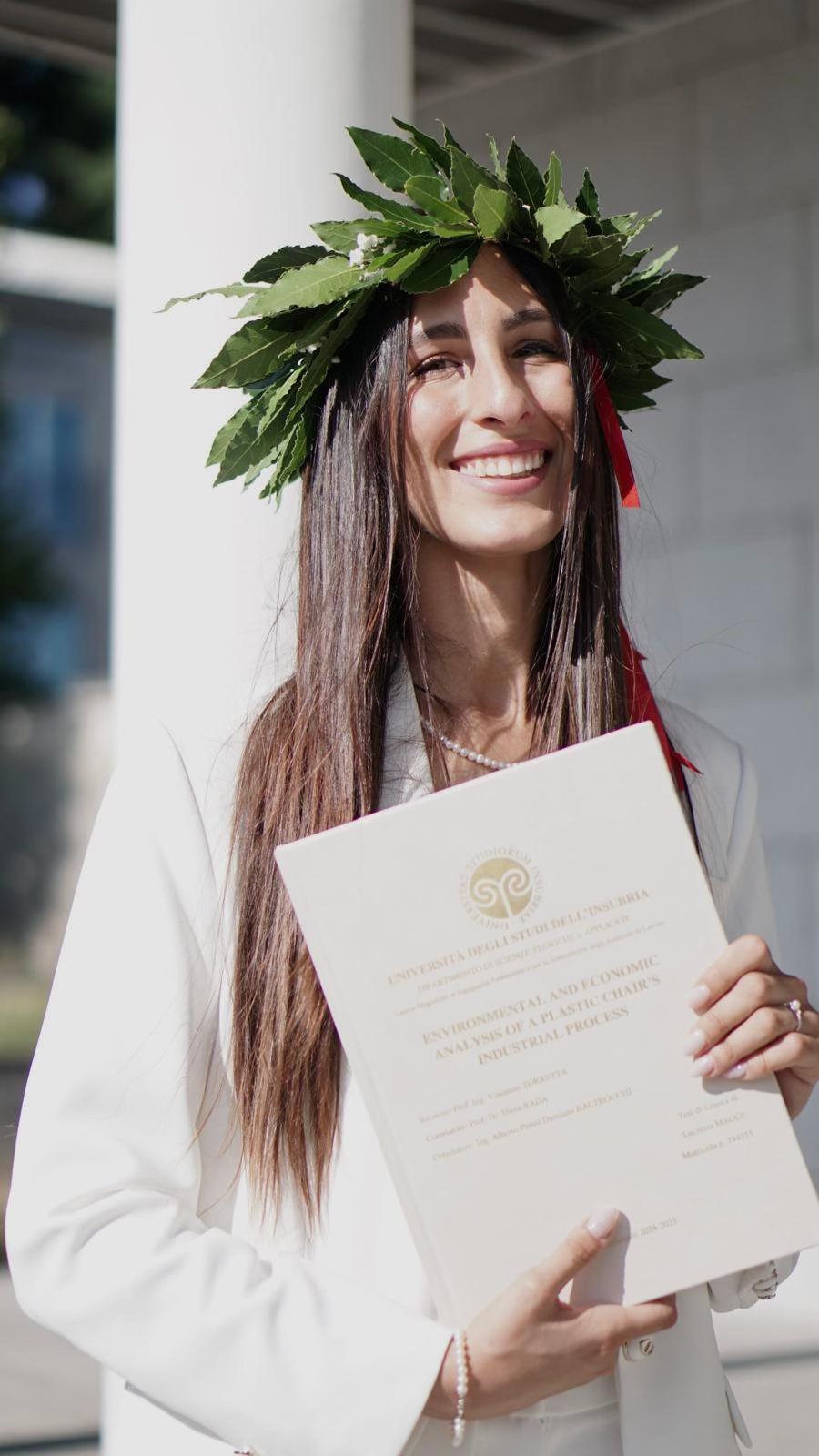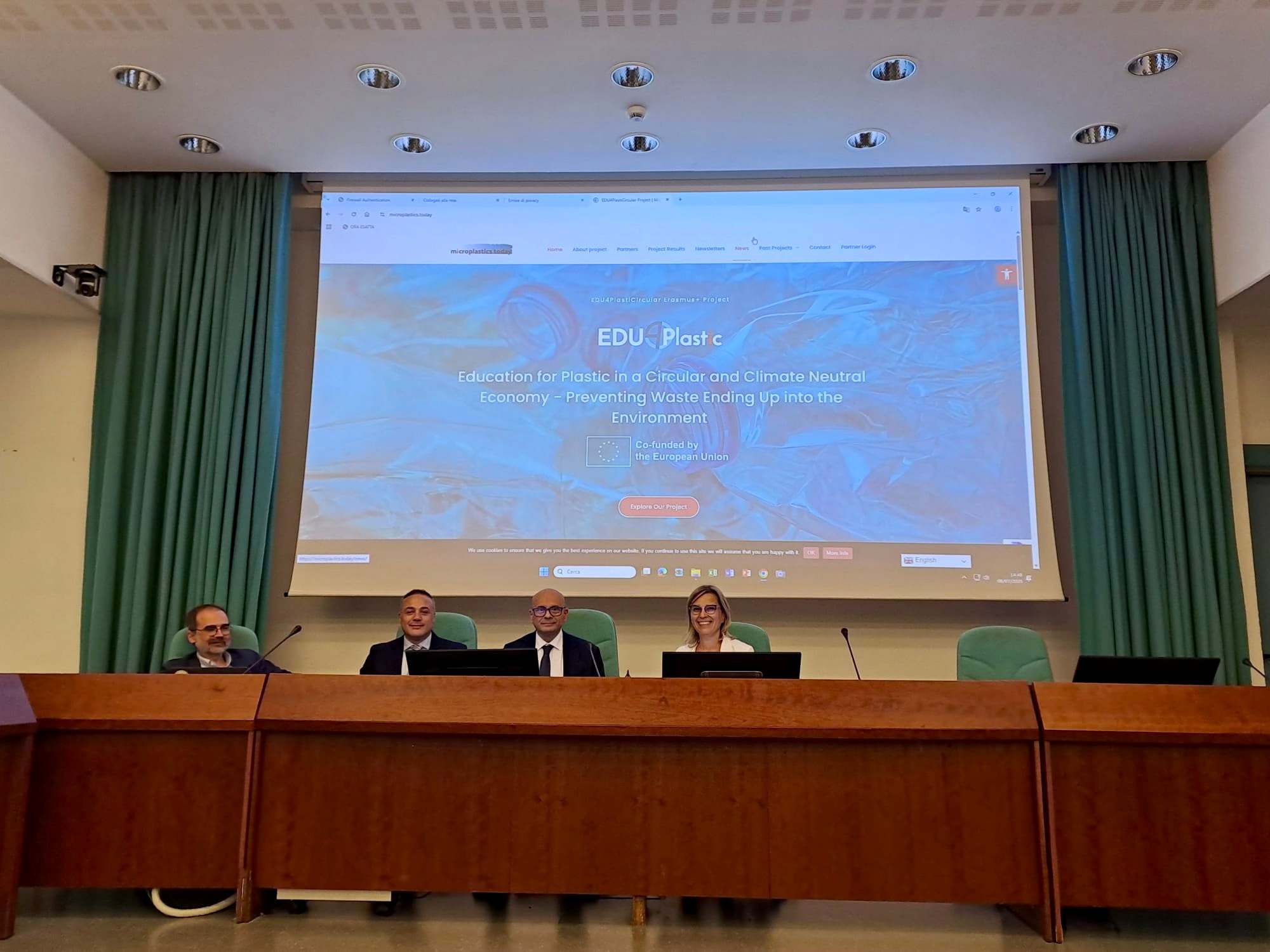During a recent degree session at the University of Insubria, the thesis “Environmental and Economic Analysis of a Plastic Chair’s Industrial Process” sparked a meaningful discussion on the intersection of design, production, and sustainability. The work explored the life cycle of a common plastic product, examining both environmental impacts and economic efficiency within the framework of circular economy strategies.
Members of the Degree Commission—two of whom are involved in the EDU4PlastiCircular project and served as tutors to the student—highlighted the importance of informed decisions in product design and manufacturing. Their dialogue emphasized that thoughtful choices at the design and production stages can drastically reduce emissions, lower energy consumption, and minimize the plastic waste that enters our environment.
This discussion directly connects to the mission of EDU4PlastiCircular – Education for Plastic in a Circular and Climate Neutral Economy. The project focuses on empowering future professionals with the knowledge and tools to create solutions that are not only economically viable but also environmentally responsible.
By fostering collaboration between academia, industry, and research, initiatives like EDU4PlastiCircular demonstrate how education can drive tangible change toward a more sustainable, circular future for plastics.


